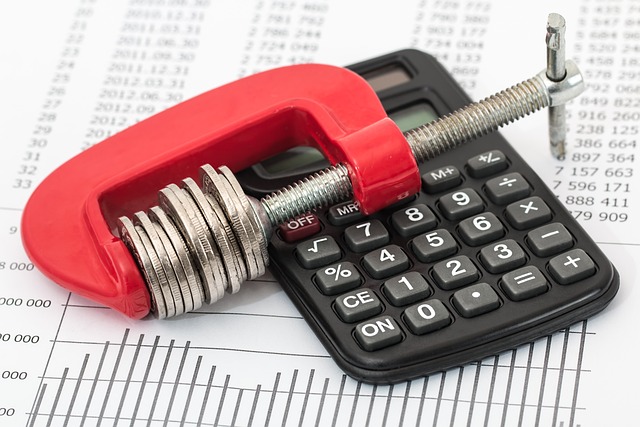Cryptocurrency and Taxes in the Netherlands: A Comprehensive Guide

Cryptocurrency has gained significant popularity in the Netherlands, with many individuals and businesses investing in digital assets like Bitcoin, Ethereum, and others. However, the tax implications of cryptocurrency transactions can be complex and are often misunderstood. The Dutch tax authorities have specific rules and guidelines for the taxation of cryptocurrencies, and it’s essential for investors and users to be aware of these to ensure compliance and avoid potential penalties. This article provides a detailed overview of how cryptocurrency is taxed in the Netherlands, covering income tax, wealth tax, and other relevant considerations.
1. Taxation of Cryptocurrency: Key Principles
In the Netherlands, cryptocurrency is treated as an asset rather than a currency. This means that it is subject to taxation under the Dutch tax system, specifically within the framework of income tax and wealth tax. The tax treatment depends on the nature of the cryptocurrency activities, such as whether it is held as an investment, used for transactions, or mined.
2. Income Tax (Inkomstenbelasting)
Cryptocurrency transactions can generate taxable income, which must be reported under the Dutch income tax system. The tax treatment depends on the type of income generated.
Box 1 (Income from Work and Home)
Cryptocurrency income is generally taxed under Box 1 if it is derived from activities that are considered a form of employment or business. Examples include:
- Mining: Income from cryptocurrency mining is considered taxable if it is carried out as a business activity.
- Staking: Rewards from staking cryptocurrencies may also be taxable as business income.
- Trading: If cryptocurrency trading is conducted as a professional activity (e.g., frequent trading with significant profits), it may be taxed as business income.
Tax Rates
Income under Box 1 is subject to progressive tax rates:
- Up to €73,031: 36.93%
- Above €73,031: 49.50%
Deductions
Business expenses related to cryptocurrency activities (e.g., mining equipment, electricity costs) may be deductible.
Box 3 (Income from Savings and Investments)
If cryptocurrency is held as an investment, it is taxed under Box 3, which applies to income from savings and investments. The tax is based on the notional return (deemed income) rather than actual gains or losses.
Taxable Assets
The total value of cryptocurrency holdings is included in the calculation of taxable assets in Box 3.
Tax Rates (2023)
- Notional Return: 6.17% (savings) and 5.53% (investments).
- Tax Rate: 32% of the notional return.
Exemptions
- Tax-Free Allowance: €57,000 (single) or €114,000 (joint).
Reporting
Cryptocurrency holdings must be reported as part of your total assets in Box 3 when filing your annual tax return.
3. Wealth Tax (Vermogensrendementsheffing)
Cryptocurrency is considered part of your wealth and is subject to the Dutch wealth tax under Box 3. The tax is calculated based on the total value of your assets, including cryptocurrency, as of January 1 of the tax year.
Valuation
The value of cryptocurrency is determined based on its market price on January 1. If the cryptocurrency is not traded on a public exchange, you may need to estimate its fair market value.
Tax-Free Allowance
- Single: €57,000
- Joint: €114,000
Example Calculation
If your total assets (including cryptocurrency) are worth €100,000 on January 1, the taxable amount is €100,000 – €57,000 = €43,000. The notional return is calculated as 6.17% (savings) or 5.53% (investments), and the tax is 32% of this notional return.
4. Capital Gains Tax
The Netherlands does not have a separate capital gains tax. Instead, gains from the sale of cryptocurrency are taxed under Box 3 as part of the notional return on investments. This means that actual gains or losses are not directly taxed, but the total value of your assets is subject to the wealth tax.
5. Gift and Inheritance Tax (Erf- en Schenkbelasting)
Cryptocurrency is also subject to gift and inheritance tax if it is transferred as a gift or inherited.
Gift Tax
- Rates: 10% to 40%, depending on the relationship to the recipient and the value of the gift.
- Exemptions: Annual gift tax exemption of €2,418 (children) and €2,274 (others).
Inheritance Tax
- Rates: 10% to 40%, depending on the relationship to the deceased and the value of the inheritance.
- Exemptions: Lifetime gift tax exemption of €27,231 (children) and €2,274 (others).
6. VAT (BTW) on Cryptocurrency Transactions
Cryptocurrency transactions are generally exempt from VAT in the Netherlands. This aligns with the European Court of Justice’s ruling that Bitcoin and other cryptocurrencies should be treated as a means of payment rather than a good or service.
Exceptions
- Goods and Services Purchased with Cryptocurrency: VAT applies to the underlying goods or services, not the cryptocurrency itself.
- Mining and Trading Services: If cryptocurrency mining or trading is conducted as a business activity, VAT may apply to the services provided.
7. Reporting Requirements
Cryptocurrency holders must accurately report their holdings and transactions to the Dutch tax authorities. Failure to do so can result in penalties and interest.
Annual Tax Return
- Report cryptocurrency holdings as part of your total assets in Box 3.
- Declare any income from cryptocurrency activities (e.g., mining, staking, trading) in Box 1 or Box 3, as applicable.
Record-Keeping
- Maintain detailed records of all cryptocurrency transactions, including dates, amounts, and values in euros.
- Keep track of mining activities, staking rewards, and trading profits or losses.
8. Tax Planning and Compliance
Given the complexity of cryptocurrency taxation, it’s advisable to seek professional advice to ensure compliance and optimize your tax position. Key considerations include:
- Tax Residency: Ensure you understand your tax residency status and its implications for cryptocurrency taxation.
- Valuation: Accurately determine the value of your cryptocurrency holdings for tax purposes.
- Deductions: Claim allowable deductions for business expenses related to cryptocurrency activities.
- Reporting: File your tax returns accurately and on time to avoid penalties.




